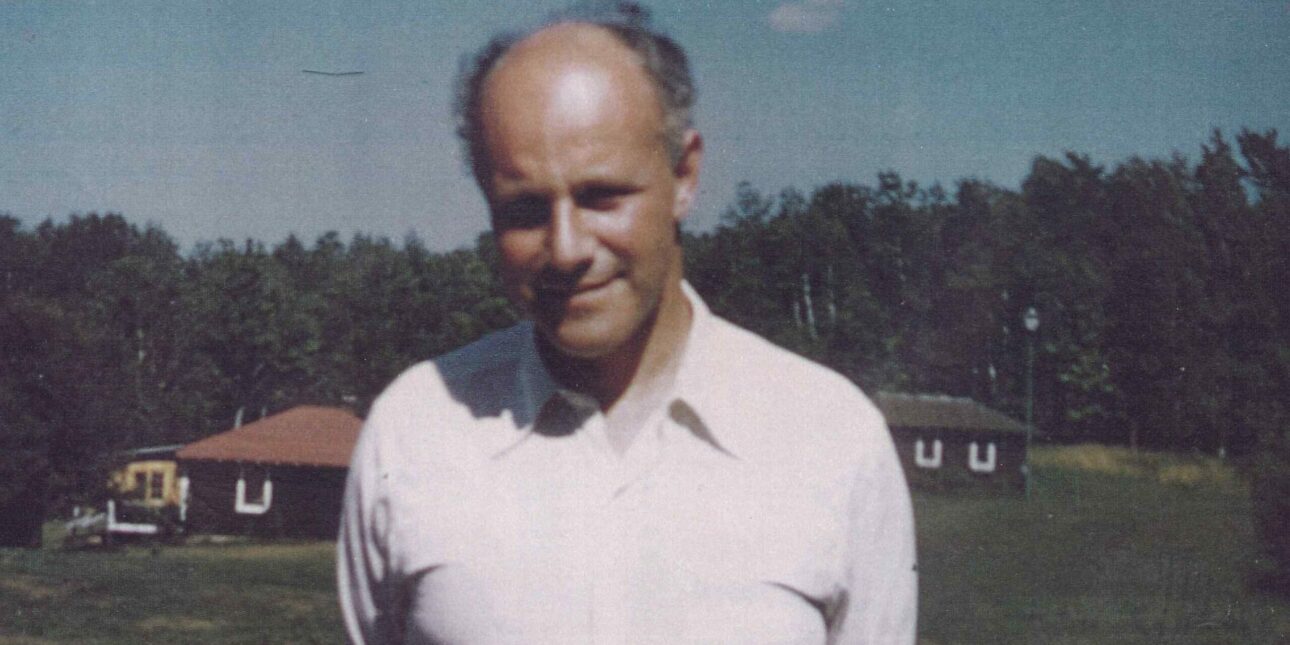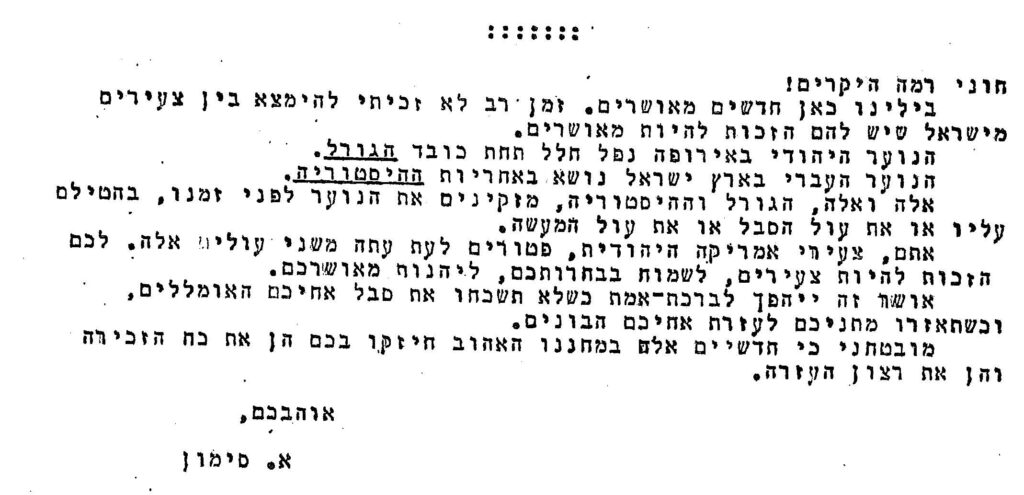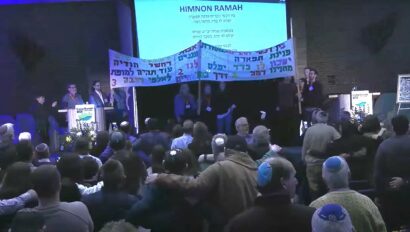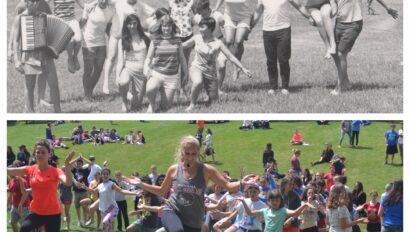
By Rabbi David Soloff, Director Emeritus
During a periodic organizing of material in our downtown offices, we came across a mimeographed booklet distributed to campers and staff at the end of the 1948 camp season. This was the second season of Camp Ramah in Wisconsin, with 100 campers attending from across the United States and 50 educational and support staff.
The booklet, entitled Teruat Ramah, (The Call of Ramah) and written entirely in Hebrew, included pieces from Camp Director Henry (Hillel) Goldberg along with several key staff members and senior campers. Each of its ten articles can be read for insight with an eye to Ramah history. I want to share one article from the booklet that can be read as a document of Jewish history.
Camp Ramah brought Professor Akiba Ernst Simon to serve for two months as professor-in-residence in 1948. Ernst Simon, as he was known, was an educator, religious thinker, and writer born in Berlin in 1899. He became an active Zionist in 1918, and co-edited Der Jude with Martin Buber. He began his work as an educator in Germany and continued it after settling in Palestine in 1928. In 1935 Simon joined the staff of the Hebrew University, where he became professor of philosophy and history of education, and, finally, director of the School of Education.
This is Prof. Simon’s letter to Ramah campers, included in the 1948 end-of-season booklet.

Dear Ramah campers,
We have spent enjoyable months here. It has been a long time since I have merited to be among Jewish youth who have had the privilege of being happy.
The Jewish youth in Europe fell as a corpse under the weight of fate.
The Hebrew youth in the land of Israel carry historic responsibilities.
Together, fate and history cause these youth to age before their time by placing on them the burden of suffering or the burden of action.
You, the youth of Jewish America, are currently free of these two burdens. You have the privilege to be young, to rejoice in your adolescence, to enjoy your happiness. This happiness will become a true blessing if you do not forget the suffering of your unfortunate brothers and if you prepare yourselves to help your brothers, the builders.
I am sure that these two months in our beloved camp strengthened your power to remember and the desire to help.
Yours truly,
Simon
Here are some parts of the letter that I found fascinating:
“Dear Ramah campers” – the term honim, from the same root as machane (camp) was used in the early years to refer to campers. Today we use the term hanichim, which comes from the same root as hinuch (education).
“Noar Yehudi and Noar Ivri” (Jewish youth and Hebrew youth) – Beginning in the first decades of the 20th century well past the founding of the State there were debates about defining Jewish identity. Among many Zionists the term Ivri connoted the new Jew in Israel and Yehudi connoted the old Jew in the Diaspora or Galut. Note that Prof. Simon does not use either term to describe the campers. Instead he refers to the campers as the youth of Jewish America. Today the term “Israeli” supersedes both earlier terms for many in Israel.
Prof. Simon is writing these words during the summer of 1948, the same year the State of Israel was declared!!
He finishes his remarks with a charge to action – the campers must remember their brothers, both those who have suffered and those who are still in peril as they build anew.
This is a framing document for the Ramah mission and a challenge for us today to articulate how we define ourselves. What term describes us? How are we known to ourselves, to Israelis in Israel and to Jews worldwide? In what way does our Ramah experience today strengthen our power to remember and our desire to help?





